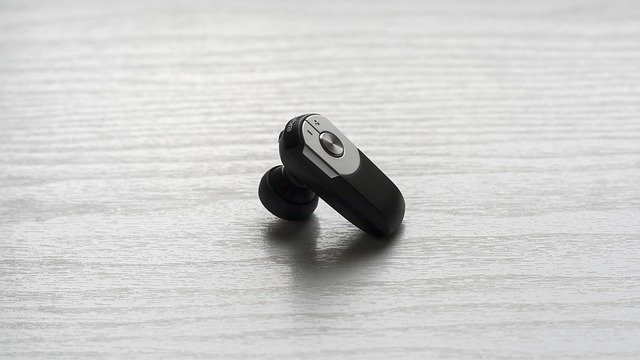We ♥︎ honesty! Beat EMF may earn a commission through links on this page at no additional cost to you.
It’s no surprise society as a whole has chosen to go wireless.
It is easy, convenient, and compliments our superpowers of multitasking.
But while everyone else is questioning what type of headset or earpiece to get, I’m over here asking:
Is bluetooth safe for my brain?
Because unlike other types of technology, the long-term effects of Bluetooth have not been fully explored by researchers.
So today I want to talk about how Bluetooth works, how that impacts your body, and how it can potentially alter the function of your brain.

ELIMINATE THE MYSTERY (& OVERWHELM) OF EMF PROTECTION
Get a self-paced, step-by-step path to less EMF in your life—without weighing you down with complicated terminology & information overload.
How Does Bluetooth Technology Work?
Before we can understand the problem that Bluetooth causes, we first need to understand how it works.
In a nutshell, Bluetooth technology involves short-range wireless communication.
Bluetooth devices operate at a frequency that is similar to the range of Wi-Fi networks and microwaves.
Each Bluetooth device is equipped with a core system that allows a frequency-hopping transceiver to avoid fading or interference with the signal.
When devices are synchronized with each other, they form a piconet (a network of with 2 or more devices occupying the same channel).
In a piconet, you have the master device and the connecting components. These connecting devices may be a speaker, headset, or car stereo.
What controls them is the master device, which is often your phone or computer.
Now, the synchronized devices in a piconet share the same clock and frequency-hopping pattern that is provided by the master device.
In terms of how the devices connect, Bluetooth makes use of the device’s “inquiry” and “inquiry scan.”
Imagine that you’re going to wirelessly print a picture from your phone.
Your phone is the inquiring device, while your printer is the scanning device. The printer is constantly listening in on frequencies that are inquiring.
Once the printer receives an inquiry from the phone, the printer shows up as an available device and is ready to accept the connection.
Why Bluetooth Is Bad
For Bluetooth devices to function, they use certain radiation that can be harmful to humans upon long exposure.
Bluetooth radiation is characterized by its short wavelengths that transmit pulses at high speeds.
This radiation, which is a type of microwave radiation, is known to have the ability to penetrate through our tissues and disrupt cell growth.
More than that, several studies have suspected that this radiation is carcinogenic, meaning it can increase your risk of cancer.
Other biological concerns connected to Bluetooth radiation is your fertility.
Research has shown that using Bluetooth devices like headsets reduces a man’s sperm quantity and quality.
Other harmful effects related to Bluetooth are developing mood disorders, having disrupted sleeping patterns, and feelings of nausea and dizziness.
More than that, it increases your risk of having Alzheimer’s disease, brain cancer, and birth defects.
How Does Bluetooth Impact the Brain?
Now that we’re aware of the negative effects Bluetooth can have on the body, let’s focus more on its impact on your brain.
Your head is more vulnerable to radiation from devices because it is composed of conductive soft tissues.
So being exposed to artificial electromagnetic fields (EMF) can disrupt how your brain cells communicate with each other.
As a result, you can experience a variety of side effects.
Some of the most common include frequent headaches and symptoms of depression.
There aren’t many studies conducted specifically on Bluetooth, so we’ll have to reference those conducted on the same frequency range.
With that said, research published in the Journal of Neuroanatomy shows that exposure to EMFs from frequencies similar to Bluetooth devices can disrupt the brain’s neural communication.
Apart from neuropsychiatric conditions, this type of radiation can also cause the onset of tinnitus and can aggravate it if you already have it.
Apart from what’s been discussed so far, long exposure to EMF can also be linked to Attention Deficit Hyperactivity Disorder (ADHD), especially for developing children.
Here’s how:
The EMF from devices like these can cause calcium leakage into cells, leading to hypersensitive cells that tend to send sporadic signals.
As a result, mental activity changes and the affected individual tends to get lost in random thoughts and lose concentration.
Overall, Bluetooth radiation can cause biological damage to your body.
The signaling of human cells is thrown off, causing leaks in the ion channels. This leads to DNA damage that cannot be naturally repaired, thus increasing your risk of developing cancer.
More than that, the blood-brain barrier in your head weakens causing a higher chance for neurological damage.
This is why wireless headphones are particularly dangerous.
Bluetooth Headaches: Anecdotal Evidence
Now let’s transition from documented studies to the stories of people everywhere just like you.
Many consumers have experienced nasty headaches when using Bluetooth devices or being exposed to similar wireless networks.
They report feeling tension in their head and nausea that only ceased once the devices and networks were turned off.
One user experimented with turning off his Bluetooth devices and using a Bluetooth spammer. He was surprised to find that after doing this, his headache subsided within minutes.
Another user complained that their loved ones had been experiencing terrible headaches for almost a year.
After going through numerous doctors, they started to suspect that the nausea was caused by their wireless broadband.
True to their expectations, as soon as they turned off their wireless network, the aches started to go away as well.
But when they turned the network back on, the headache came back.
Others have commented that frequent use and long exposure to Bluetooth devices aggravate its negative effects on the body.
Apart from the constant headaches, people report feeling more tired and sleepy than before.
Due to numerous complaints, urgent concerns have been voiced out in forums and discussion boards.
I wonder when those concerns will be addressed?
Or what it will take to capture the attention of big tech companies?
Final Verdict: Are Bluetooth Headsets Safe to Use?
Considering all that’s been discussed, I personally believe Bluetooth headsets pose a risk to our health, and I don’t use them.
If you look at the research that’s been done on the same frequency range Bluetooth uses, you’ll see that this type of radiation can change the structure of your cells and make you more vulnerable to disease.
And so, despite the convenience that its wireless connectivity promises, the consequences are not worth it.
The only alternative I feel comfortable recommending at this point is a pair of air tube headphones with ferrite beads.
Frequently Asked Questions
1. Bluetooth hurts my head. Why?
Although studies are still lacking, researchers suspect that the radiation from Bluetooth devices can cause dangerous effects on cells by opening calcium channels, allowing excess calcium to pour into them. This creates a domino effect of effects that can lead to headaches, brain fog, and more.
2. Does Bluetooth damage your brain?
That hasn’t been definitively proven. Theories claim that radiation emitted by Bluetooth devices can disrupt cellular communication and damage certain tissues.
3. Are Bluetooth speakers safe?
No, but they are safER simply due to distance – aka they’re not right up against your head typically.
Certified EMF Expert, Chief Editor & Researcher at Beat EMF. I’m in charge of testing all the products and sorting through the duds to deliver effective EMF solutions for your family. Learn more about me here.


If I want to use them once a week.Would that be better?
If by them you mean bluetooth devices? Yes, using them once a week would be better than every day. One of the methods of “shielding” when something can’t actually technically be shielded is “duration,” meaning you decrease the amount and time of use.
Going from every day use to once a week is a good reduction.
I have been wearing hearing aids for the last 8 years and connecting to the TV through a Bluetooth streaming device looped around my neck for the last 5.I had a bleed on the brain 4 years ago which cleared up by itself without surgery however since then I have had a number of episodes of head wooziness and unsteady on my feet together with a feeling of nausea. These episodes are becoming more frequent (twice in the last week) and only abate with sleep.How likely is this due to my connecting to TV through Bluetooth sometimes for hours on end?
Hi Mike,
Failures in our health are almost always due to a culmination of things. So while I wouldn’t say that your RF exposure from your wireless hearing aids are ‘the cause’ of your issues, I do believe RF/EMF plays an underlying role in many, many health concerns. It interferes with the way your cells function, so you can imagine the domino effect that sets off.
I had bilateral hearing defect and corrected by hearing aids. On 2015 my audiologist advised me to use the new advanced hearing aids with Bluetooth options initially I was happy but later on I suffered from many attacks of vertigo and dizziness which was investigated heavily without identifying the cause currently I am back to the simple hearing aids without Bluetooth and have no recurrence of vertigo or dizziness which only explained by the Bluetooth of hearing aids
Thank you for sharing your experience! Maybe others in similar situations will see it and connect the dots like you have.